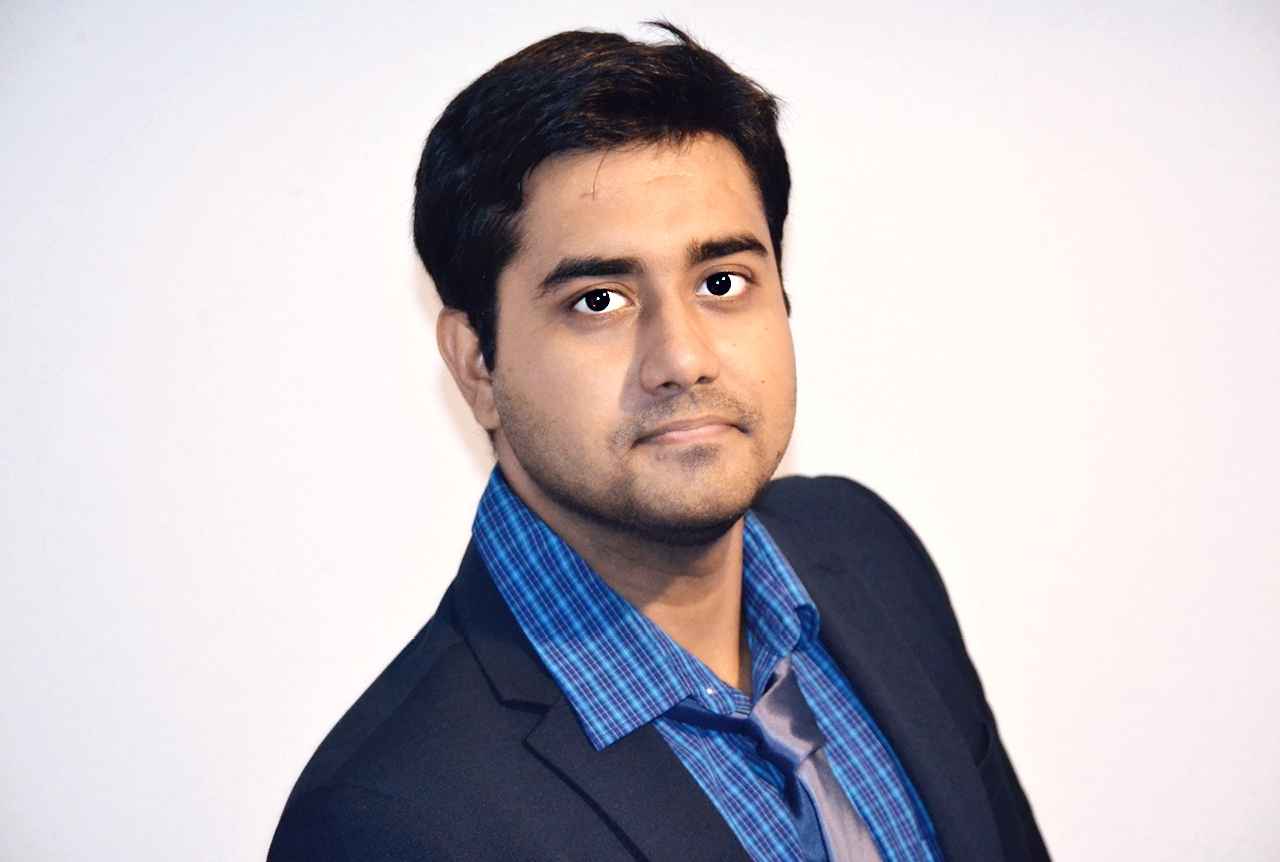Dr. Projesh Kumar Roy
C O M P U T A T I O N A L M A T E R I A L D I S C O V E R Y
L A B O R A T O R Y
(@MatDisco)

S U P E R V I S O R
D R. P R O J E S H K U M A R R O Y
Assistant Professor
Room No CH314, OJAS Building
Department of Chemistry
National Institute of Technology Tiruchirappalli
Tiruchirappalli 620015
Email: projesh@nitt.edu
projesh.roy@gmail.com
Phone: +91-431-250-3645
Google Scholar: https://scholar.google.com/citations?user=QycvRLEAAAAJ&hl=en
B I O D A T A
-
Post-Doctoral experience:
- Indian Institute of Technology, Madras (2022-2024)
- Guide: Prof. Sanjib Senapati
- Institute of Mathematical Sciences, Chennai (2020-2022)
- Guide: Prof. Pinaki Chaudhuri, Prof. Satyavani Vemparala
- Indian Institute of Science, Bangalore (2019-2020)
- Guide: Prof. Prabal K Maiti, Prof. K. Ganapathy Ayappa
-
Ph.D. in Computational Chemistry:
- University of Münster, Germany (2013-2018)
- Guide: Prof. Andreas Heuer
-
M.Sc. in Chemistry:
- Indian Institute of Technology, Kanpur (2011-2013)
- Guide: Prof. Nishant N. Nair
-
B.Sc. (Hons.) in Chemistry:
- Presidency college, University of Calcutta (2008-2011)
R E S E A R C H G R A N T S
- Accepted SERB-NPDF fellowship from DST-SERB (2022-2024)
- Selected For DBT-RA fellowship (2020).
- Institute Post-Doctoral fellowship (IPDF) from IMSc, Chennai (2020-2022)
- Industrial Research Associate fellowship at IISc, Bangalore and SHELL India Inc. (2019-2020)
- International fellowship from NRW Graduate School of Chemistry, University of Münster, Germany.
R E S E A R C H I N T E R E S T S @MatDisco

-
Computational Chemistry:
-
Carbon capture using polymeric membranes.
-
Dynamics of ring-polymers.
-
Mechanical properties of Silica.
-
Ionic-liquids.
-
Theoretical Chemistry:
-
Computational Biology:
-
Artificial Intelligence and Machine Learning:
M A J O R P U B L I C A T I O N S
- Modelling the atomic arrangement of amorphous 2D silica: a network analysis; P. K. Roy, M. Heyde and A. Heuer, Phys. Chem. Chem. Phys., 2018, 20(21), 14725, DOI: 10.1039/C8CP01313F
- Ring Statistics in 2D-silica: Effective Temperatures in Equilibrium; P. K. Roy and A. Heuer, Phys. Rev. Lett., 2019, 122(1), 016104, DOI: 10.1103/PhysRevLett.122.016104
- Investigations on 6FDA/BPDA-DAM polymer melt properties and CO2 adsorption using molecular dynamics simulations; P. K. Roy, K. Kumar, F. M. Thakkar, A. D. Pathak, K. G. Ayappa and P. K. Maiti, J. Mem. Sci., 2020, 631, 118377, DOI: 10.1016/j.memsci.2020.118377
- Effect of ring stiffness and ambient pressure on the dynamical slowdown in ring polymers; P. K. Roy, P. Chaudhuri, S. Vemparala, Soft Matter, 2022, 18, 2959-2967, DOI: 10.1039/D1SM01754C
- Derivation of a statistical model for classical systems obeying fractional exclusion principle; P. K. Roy, Phys. Rev. E, 2022, 106, 014141, DOI: 10.1103/PhysRevE.106.01414
T E A C H I N G E X P E R I E N C E
-
Masters Courses
- CH629 Polymer Chemistry (M. Sc.)
- CH631 Electronic structure methods for molecular and solid state systems (M. Sc.)
- CHPE624 Multiscale Simulation Methods (M. Sc.)
-
Bachelors Courses
- CHIR 11 Theory (B. Tech.)
- CHIR 12 Laboratory (B. Tech.)
R E S E A R C H G R O U P
-
Ph.D. Students
-
Masters Students
- Mrs. Vashiya Jothi C (2025-2026), NIT Trichy
- Ms. Poupangailiu Gangmei (2025-2026), NIT Trichy
- Mr. Sanjay K (2025-26), VIT Chennai
A L U M N I
- Mr. Anand Venugopal (Masters Project, 2024-25)
- Current Position: Data Scientist at Luminar Technolab
- Mr. Vignesh PN (Masters Project, 2024-25)
- Current Position: Intern at Zerocircle
O P E N P O S I T I O N S
Summer Internships/M.Sc. Project/Ph.D./Post.Doc positions are available in my group for students pursuing/completed B.Tech./M.Sc./M.Tech in Chemistry/Physics/Bio-Informatics/Chem-Informatics (any branch)/Chemical Engineering/Bio-Technology; and other related area. Computer programming knowledge (any language) is desired but not mandatory. Kindly send your CV to projesh.roy@gmail.com / projesh@nitt.edu

